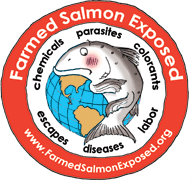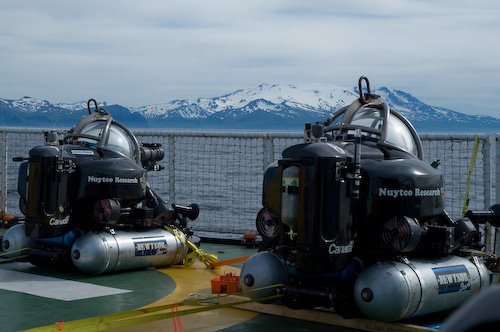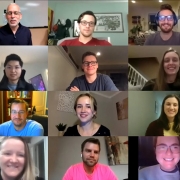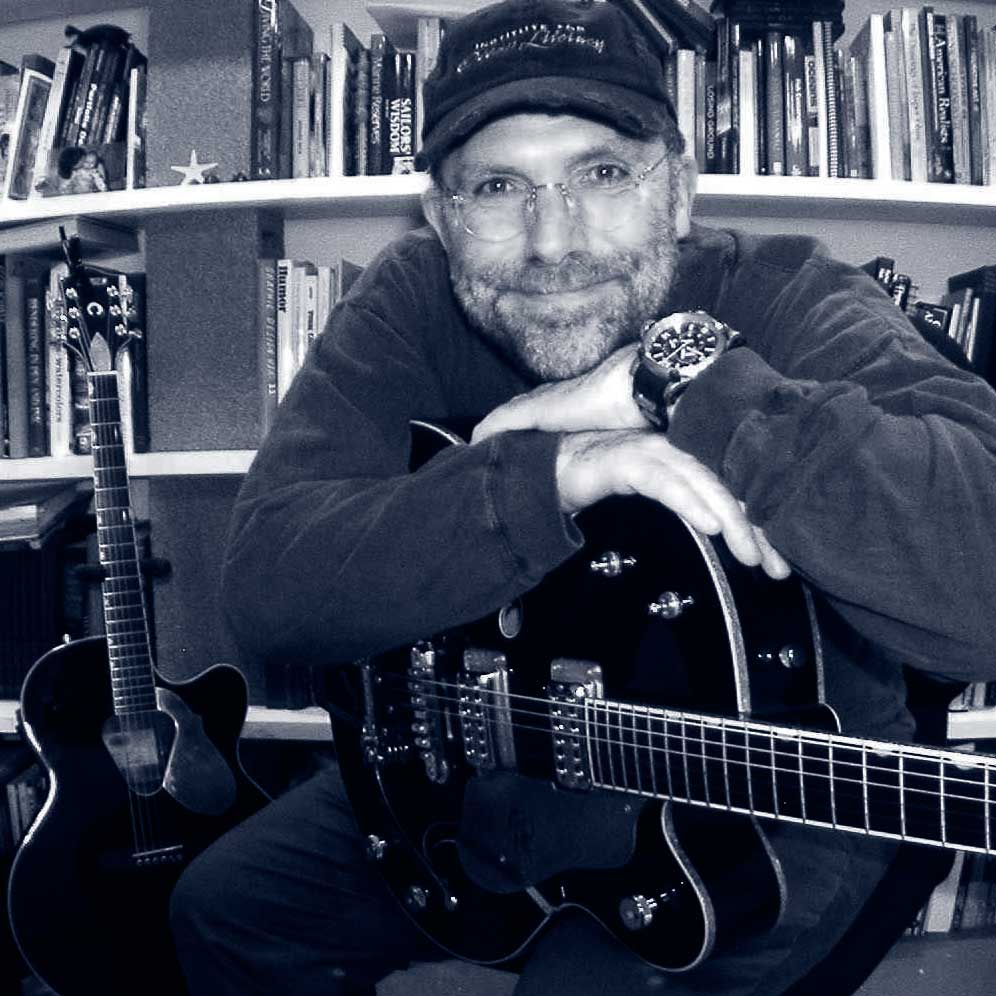Do You Eat Salmon? Then This is a Must-See: "Farmed Salmon Exposed"
 This week marks the global launch of the new documentary film,? Farmed Salmon Exposed: The Global Reach of the Norwegian Salmon Farming Industry, produced by the Pure Salmon Campaign. The 20-minute film illustrates the major environmental problems and impact of global salmon farming industry operations in Canada, Chile, Ireland, Norway, and Scotland. 1planet1ocean is pleased to host the film in its entirety below.
This week marks the global launch of the new documentary film,? Farmed Salmon Exposed: The Global Reach of the Norwegian Salmon Farming Industry, produced by the Pure Salmon Campaign. The 20-minute film illustrates the major environmental problems and impact of global salmon farming industry operations in Canada, Chile, Ireland, Norway, and Scotland. 1planet1ocean is pleased to host the film in its entirety below.
Produced by Canadian film-maker Damien Gillis, the film reveals the problems caused by open net cage salmon farms worldwide, including the pervasive nature of the issues plaguing salmon aquaculture and features testimonials by witnesses discussing the environmental and socio-economic damage caused by poorly managed salmon farms.
The film features ghillie Brian Fraser from Scotland; John Mulcahy from Save The Swilly in Ireland; Orri Vigfusson from the North Atlantic Salmon Fund in Iceland; Alexandra Morton and Dr Daniel Pauly from British Columbia; Dr Matthias Gorny from Oceana in Chile as well as Sven Helge Pedersen, King Harald and Vegard Heggem in Norway.
Additional events accompanying the launch are focused in British Columbia:
- 29 Hour Canadian First Nations “Fast”
Beginning on Feb 15th at 5am PT, and ending at 10 am PT on Feb 16th, Canadian First Nations members will fast for 29 hours representing the 29 fish farm Tenures in the territory of the Musgamagw-Tsawataineuk at the Vancouver office of the Union of British Columbia Indian Chiefs. More information (PDF) - Rally to Save Wild Salmon
On Saturday February 20th at 1PM supporters of wild salmon will rally in Vancouver’s Vanier Park. For more details, please visit www.WildSalmonCircle.com.
The Future of the Salmon We Eat
It has become clear that present methods of farming salmon are not sustainable, jeopardizing human health along with wild salmon stocks. Within just a few years, the salmon you eat might be fully grown on land using next-generation aquaculture technology using recirculation technology. Already in large-scale production in Europe and Asia for many finfish species, recirculating aquaculture systems (RAS) recirculate nearly 99% of their water, have no contact with the marine environment, use no chemicals or antibiotics and can be located close to the marketplace, reducing carbon miles for transport and resulting in a much fresher fish. Pittsburgh-based Aquaculture Developments, LLC is working with its partners overseas to bring this technology to the Americas.
 Led by Food and Water Watch, 2009 saw the creation of the Alliance for Sustainable Aquaculture (ASA), a collaborative group of researchers, business owners, non-profit organizations and interested members of the public working to further Recirculating Aquaculture Systems (RAS) in the United States through research, education, legislative work and advocacy.? ASA members believe that RAS, closed-looped and biosecure aquaculture operations, are the best option to meet our country’s need for a clean, green, sustainable, healthy seafood source to supplement our wild fisheries.
Led by Food and Water Watch, 2009 saw the creation of the Alliance for Sustainable Aquaculture (ASA), a collaborative group of researchers, business owners, non-profit organizations and interested members of the public working to further Recirculating Aquaculture Systems (RAS) in the United States through research, education, legislative work and advocacy.? ASA members believe that RAS, closed-looped and biosecure aquaculture operations, are the best option to meet our country’s need for a clean, green, sustainable, healthy seafood source to supplement our wild fisheries.
What You Can Do Now
Avoid farmed salmon (unless it’s grown using RAS technology) and opt for sustainably-caught wild salmon or an alternative like farmed Arctic char which is grown using RAS. Of course, that’s easier said than done. Information is the key and fortunately, there’s an app for that. If you have an iPhone, you can download the free Seafood Watch app from iTunes. You can also download the Seafood Watch wallet card in PDF format directly from its author at the Monterey Bay Aquarium. Most important: Ask questions! Your grocer and restaurateur need to hear from you and know that you care. Ask them what they’re serving and let them know you want to eat sustainably.
 |
 |
The Pure Salmon Campaign, is a global project with partners in the U.S., Canada, Europe, Australia and Chile.? In November 2009, 1planet1ocean president, Dr. David E. Guggenheim participated in a panel discussion during the Washington, DC premiere of Farmed Salmon Exposed.




from Seafood News :
“Alaska releases 2010 salmon forecast”
It would be Alaska\’s 19th largest salmon harvest since 1960 but …
http://seafoodsource.com/newsarticledetail.aspx?id=4294989296
I would like to point out someone who has found a fish farm that is sustainable…
http://www.ted.com/talks/lang/eng/dan_barber_how_i_fell_in_love_with_a_fish.html
They do not feed the fish, they preserve the natural environment so that the environment is sustainable to feed the fish naturally.
They judge the success of the program by how many birds have returned & how full their bellies are. These birds fly 100s of miles daily for this fish.
Side note: We keep on hearing on the news how good salmon is for us. So more and more people are eating salmon. We are overfishing the population and just recently sea lions from California have found a major salmon run. Now they have tasted salmon and have found an area the salmon must travel, this is bad!
I live in the beautiful Pacific Northwest! We are fortunate enough to have salmon & ducks, geese & wild turkey all native. So why not take the fish farm a step further? We eat duck, geese & turkey. We could redefine free range, with no fences or even feeding. All we do is monitor and sustain the health of the ecosystem as a whole and harvest the rewards. Food for thought 🙂
And for my idea to save the planet & its economy by giving away green homes & the winners must pay it forward by helping to build 3 more homes etc…
please check out my -2 minute video http://bit.ly/aHxqNf
Be Helpful, Not Hurtful
Charles Hancock
The salmon has long been at the heart of the culture and livelihood of coastal dwellers. Many people of the Northern Pacific shore had a ceremony to honor the first return of the year.